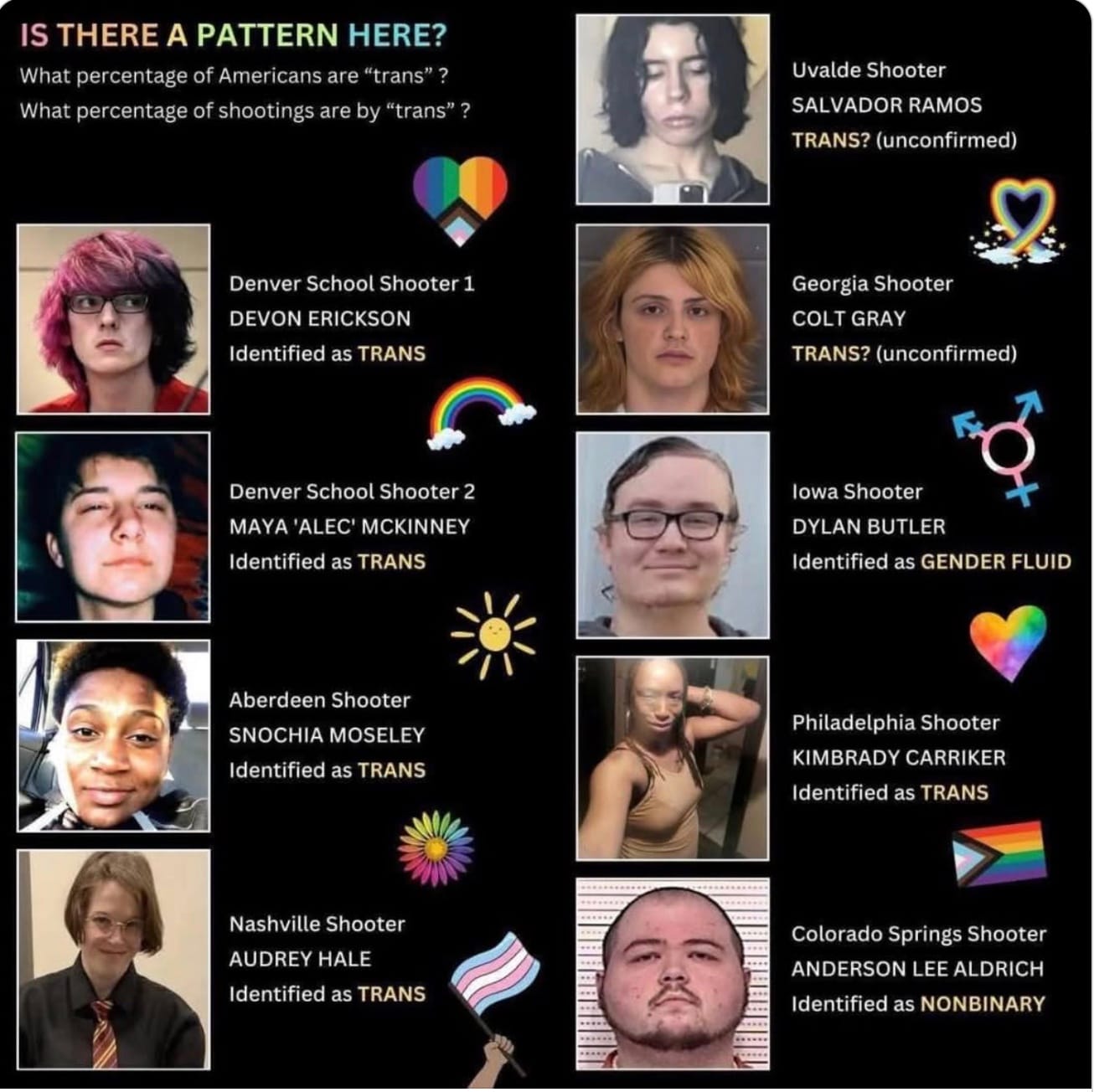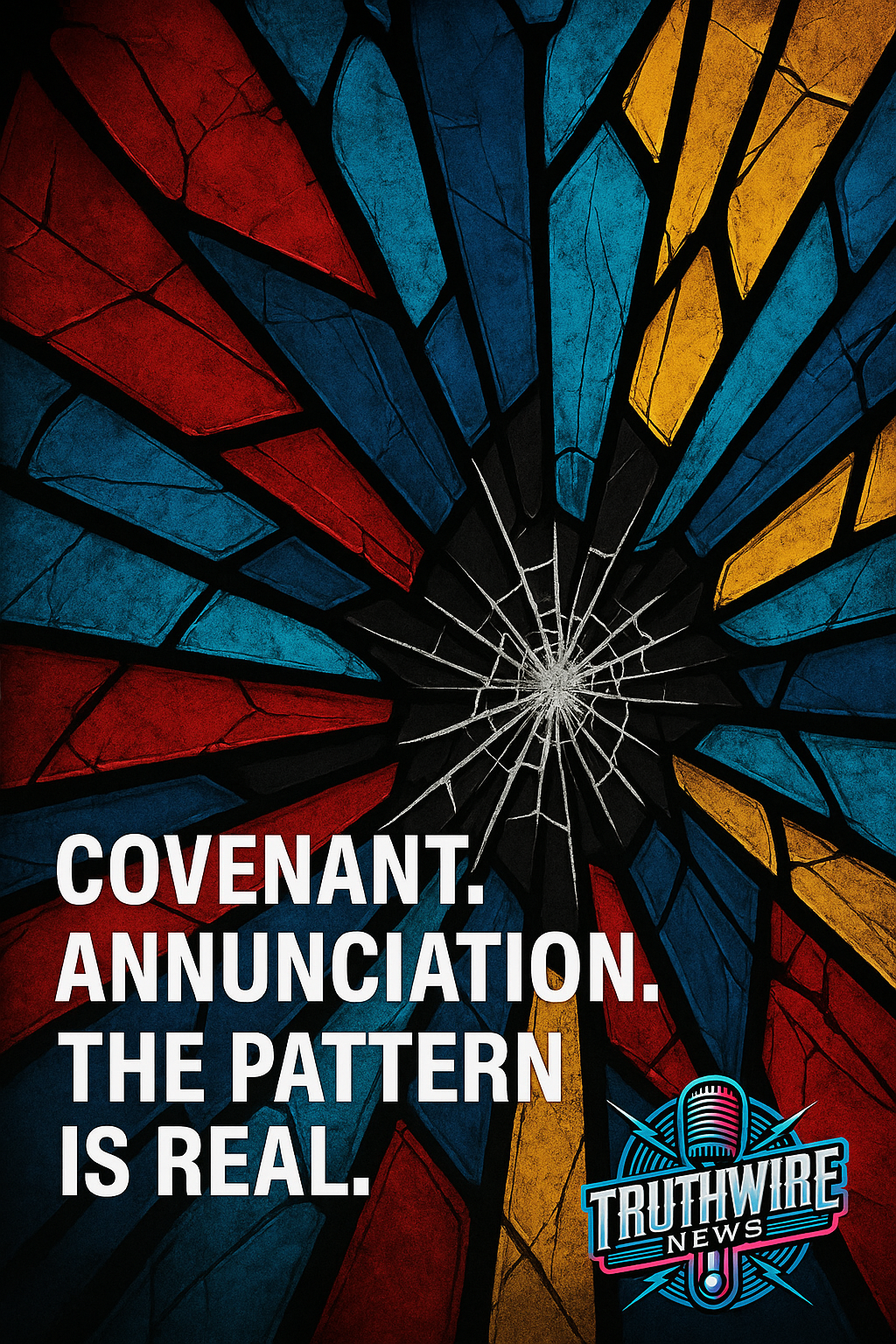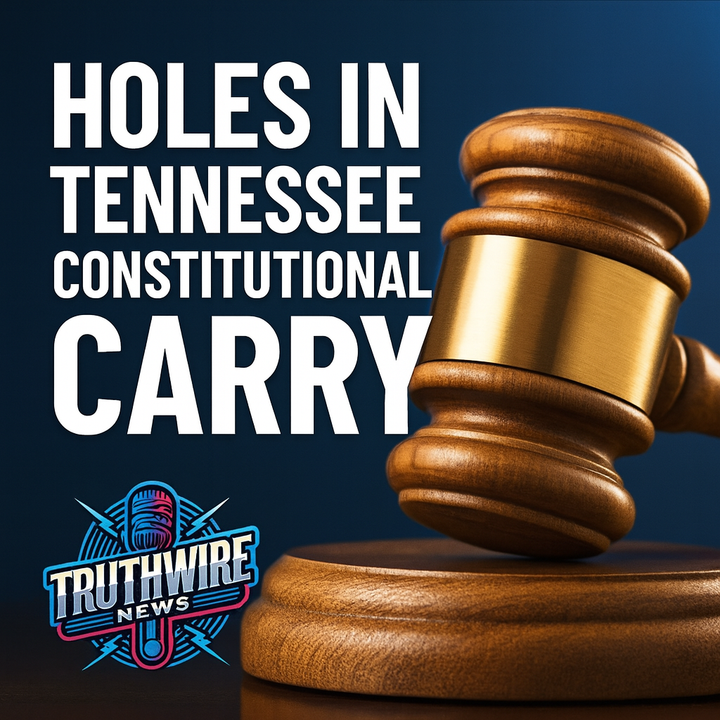From Nashville to Minneapolis, two trans-identified shooters returned to the schools of their childhoods. Their rage wasn’t random — it was personal. A culture that calls confusion “identity” and truth “hate” bears responsibility.
On August 27, 2025, 23-year-old Robert Paul “Robin” Westman opened fire at Annunciation Catholic Church and School in Minneapolis. Armed with a rifle, shotgun, and pistol, he fired into the sanctuary during morning Mass, killing two children, injuring seventeen others, and then taking his own life.
This was not a random act of violence. Westman had a personal connection to Annunciation: he attended the school through eighth grade, graduating in 2017, and his mother worked there for years. He returned to a place tied to his own childhood, just as Audrey “Aiden” Hale did when she stormed The Covenant School in Nashville in March 2023, murdering three children and three staff. Two different cities, two different schools, but the parallels are impossible to ignore. Both shooters identified as transgender, and both targeted Christian schools that had shaped their early lives.
Westman’s digital trail reveals the depth of his despair and his rage. In videos uploaded before the shooting, he displayed firearms and ammunition magazines scrawled with phrases such as “Where is your God?” “Kill Trump Now!” and “Israel Must Fall.” He even filmed himself firing at targets pinned with the face of Jesus. In his manifesto, written partly in Cyrillic script, he admitted deep regret about his transition: “I am tired of being trans. I wish I never brainwashed myself. I know I am not a woman, but I don’t feel like a man.” He coupled this personal confusion with a call for violence: “People like me need to keep killing until the right people get fed up and decide to change the system.”

The media, as it did after Covenant, has been quick to downplay Westman’s transgender identity, but a troubling pattern is becoming undeniable. In recent years, a disproportionate number of mass shooters have identified as transgender, nonbinary, or gender-fluid. While this group makes up less than one percent of the U.S. population, they are appearing in mass shootings at rates far beyond their demographic size.

The uncomfortable truth is that gender dysphoria is still listed in the DSM-5 as a diagnosable mental illness. It is, by definition, a condition marked by significant distress. Yet our culture, rather than confronting the underlying crisis, insists that affirmation is the cure. Families are told that love means agreement. Schools are pressured to adopt policies that reinforce confusion. Churches, fearing accusations of hate, soften their preaching or remain silent. And politicians — whether out of cowardice or ambition — fall in line with media narratives that prize affirmation over reality.
The result is not compassion, but neglect. Hale’s parents largely avoided her struggle, sending her to therapy but never confronting it. Westman’s parents went the other way, embracing his transition and celebrating it publicly. Both responses failed, because neither was rooted in biblical truth. The void left by avoidance on one hand and by misplaced affirmation on the other was filled by despair, anger, and, ultimately, violence.
It is no coincidence that the targets of Hale and Westman were Christian schools. These attacks are not just against people, but against the institutions that represent the faith their families once claimed. This is why the silence of the church is especially dangerous. When pastors water down the Gospel to avoid conflict, when Christian schools bend to cultural expectations, when parents confuse affirmation with love, children are left without the clarity and grounding they desperately need.
After Covenant, Tennessee’s Republican supermajority nearly surrendered to media outrage, pushing for a special session where red flag laws were openly discussed. In Minnesota, the climate is even more hostile. Lieutenant Governor Peggy Flanagan, for example, once wore a shirt featuring a knife with the words “Protect Trans Kids” — a slogan since adopted by radical activists posing online with firearms. Political leaders posture while children remain vulnerable, and the deeper crisis goes unaddressed.
The deaths of Harper Moy and Fletcher Merkel in Minneapolis, like those of the six victims at Covenant, are not only tragedies of human hate, but also of cultural cowardice. These children were not simply victims of Westman’s violence. They were victims of a society that calls confusion “identity,” labels truth “intolerance,” and pressures every institution — from the family to the church to the state — to play along.
Truth demands courage. And courage demands we stop pretending affirmation is love.
If you support what we do, please consider donating a gift in order to sustain free, independent, and TRULY CONSERVATIVE media that is focused on Middle Tennessee and BEYOND!



Comments ()